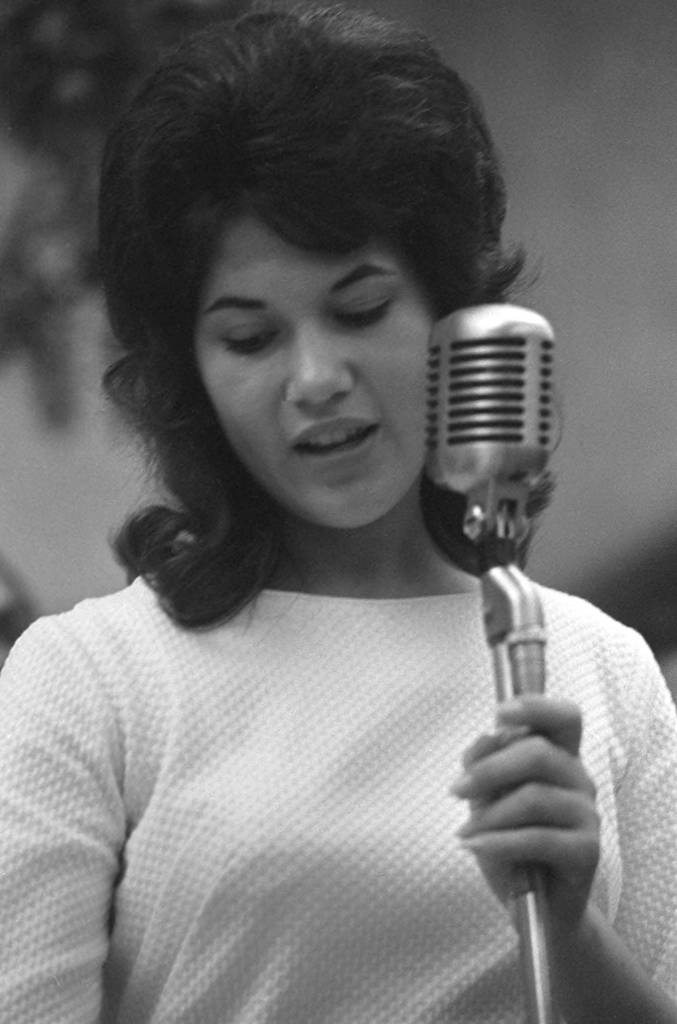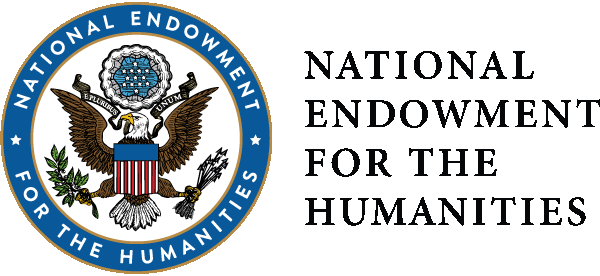Yolanda Barrera
Yolanda Barrera
Yolanda Barrera speaks at a NFWA meeting at Filipino Hall, Delano, ca. 1966. Photo by Emmon Clarke.
In the 1966 march to Sacramento, Yolanda’s father organized the Porterville area to receive the marchers and provide for them. Her parents marched on the pilgrimage to Sacramento where her father played the accordion while her uncles played the guitar and drums. Yolanda and her family were often present at the regular Friday night meetings at Filipino Hall in Delano where she would interpret. She officially served as a translator for the NFWA in 1967 at union meetings after Juanita Brown and Virginia Rodríguez Jones left to join the grape boycott.
José Raúl “Rico” Barrera and Yolanda Barrera play music surrounded by other people and Barrera family members attending a UFWOC rally, Delano, ca. 1966. Photo by John Kouns.
Yolanda Barrera speaking at a NFWA meeting at Filipino Hall, Delano, ca. 1966
Yolanda Barrera served as an interpreter (Spanish to English) for the Friday union meetings. “Chávez personally came and asked me if I would do it,” she recalled during an oral history interview at CSUN. “And of course, at a certain age, you know, you think you can do anything. So I just said, ‘Of course I could do it.’ I had never translated but I thought, well, what’s so hard about translating? I used to translate the newspaper to my dad….when we were in Porterville, we would get the newspaper and he would say, ‘Here’s the newspaper, tell me what’s in it. Translate it.’ So, I knew that I could translate because I had been doing it for my dad, but it’s different from translating when someone is speaking.”
Barrera believes she didn’t do a good job because she could translate but couldn’t do simultaneous interpreting. “They would speak and stop, and then I would translate. I would basically, do not a summary, but whatever I remembered of what they had said,” she remembered. “But I would, I would add to it. I would do editing sort of. So for example, if somebody, if it was a politician…they would say like, ‘We promise you blah, blah.’ So I’d say to the people, ‘les está prometiendo blah, blah, blah, blah, blah.’ Whatever it was they promised. And then I would say, ‘todos vienen y dicen lo mismo. Quién sabe si eso va a ser (everybody comes and makes these promises, who knows if they’re gonna do it). And people would laugh and, and whoever was speaking would look at me and say, ‘Why are they laughing?’ And I’d say, ‘I don’t know. No sé.’ And so…I was translating correctly but I would kind of add my own opinion at times. I didn’t know I wasn’t supposed to do that.
At 17, Yolanda was heavily involved in union and community activities including: serving on the California Rural Legal Assistance (CRLA) advisory board, on the El Futuro Community Organization and El Futuro Credit Union boards, and as president of Los Camaradas, which she founded. She worked as a bookkeeper for Proteus and as a community worker at Woodville Labor Camp during the rent strike against the Housing Authority.
Yolanda Barrera Oral History Playlist
Tom & Ethel Bradley Center
California State University, Northridge
18111 Nordhoff Street, Northridge, CA 91330
Phone: (818) 677-1200 / Contact Us


